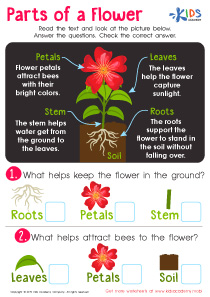Reading comprehension Easy Reading Fiction Worksheets for 7-Year-Olds
7 filtered results
-
From - To
Explore our "Reading Comprehension Easy Reading Fiction Worksheets" designed specifically for 7-year-olds! These engaging worksheets help young learners develop their reading skills while enhancing comprehension. Featuring fun stories and age-appropriate questions, our resources promote critical thinking and help children connect with the text. Perfect for both classroom and home use, these printable activities encourage a love for reading through enjoyable fiction. Whether your child is just starting to read independently or needs extra practice, our worksheets provide the right level of challenge. Start fostering reading skills today and watch your child's confidence grow with each story!
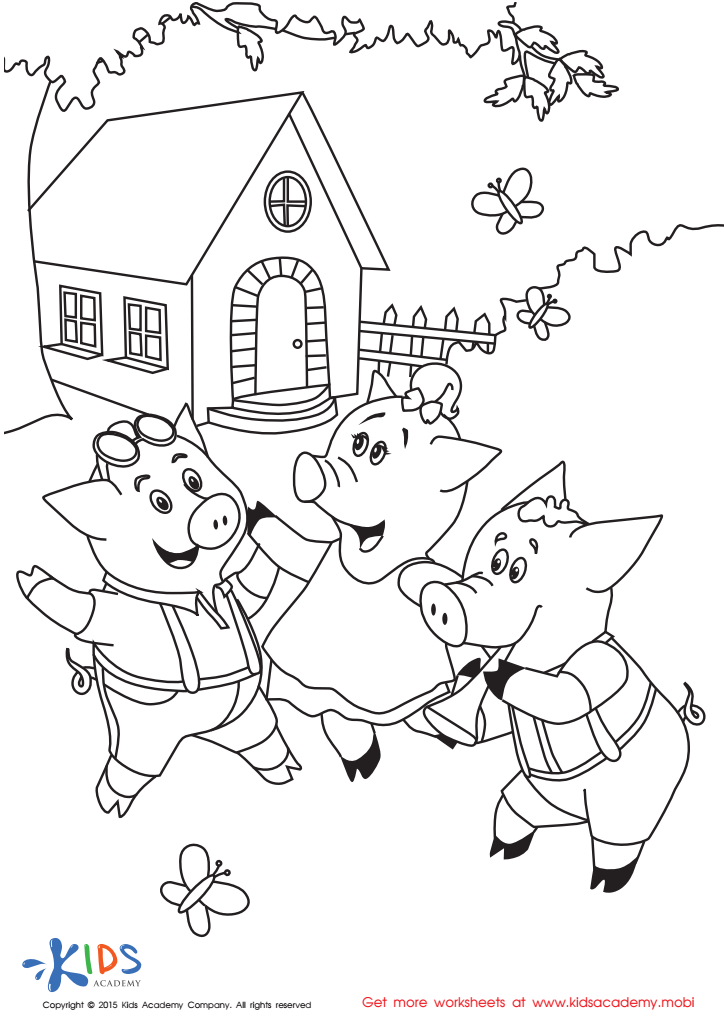

Folktales Printable PDF Worksheet: The 3 Little Pigs
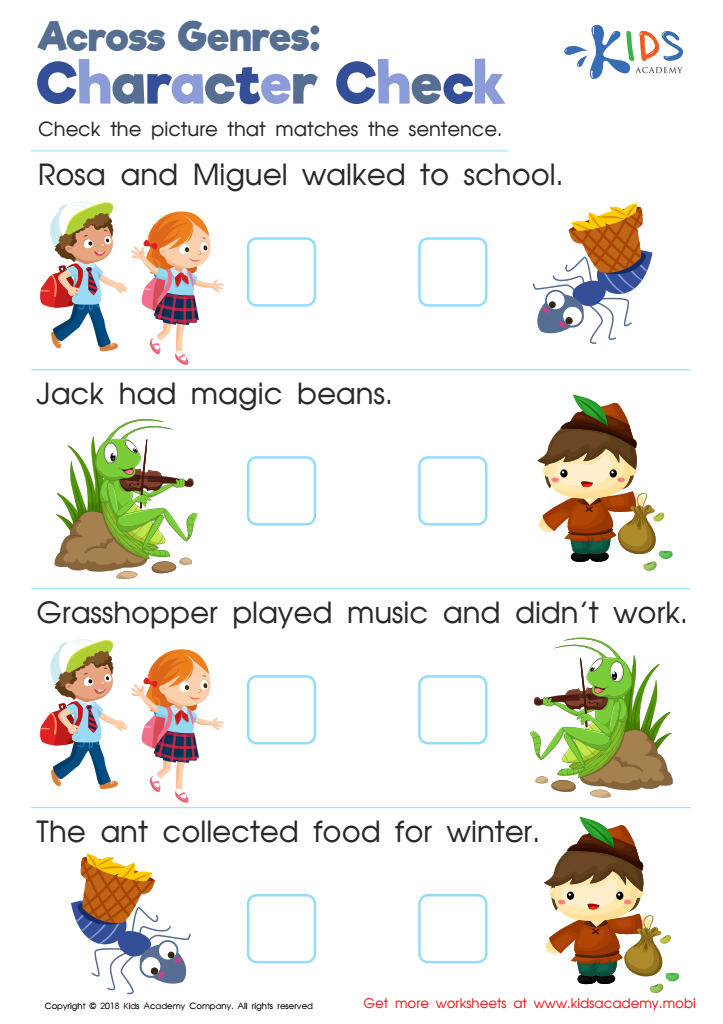

Across Genres: Character Check Worksheet
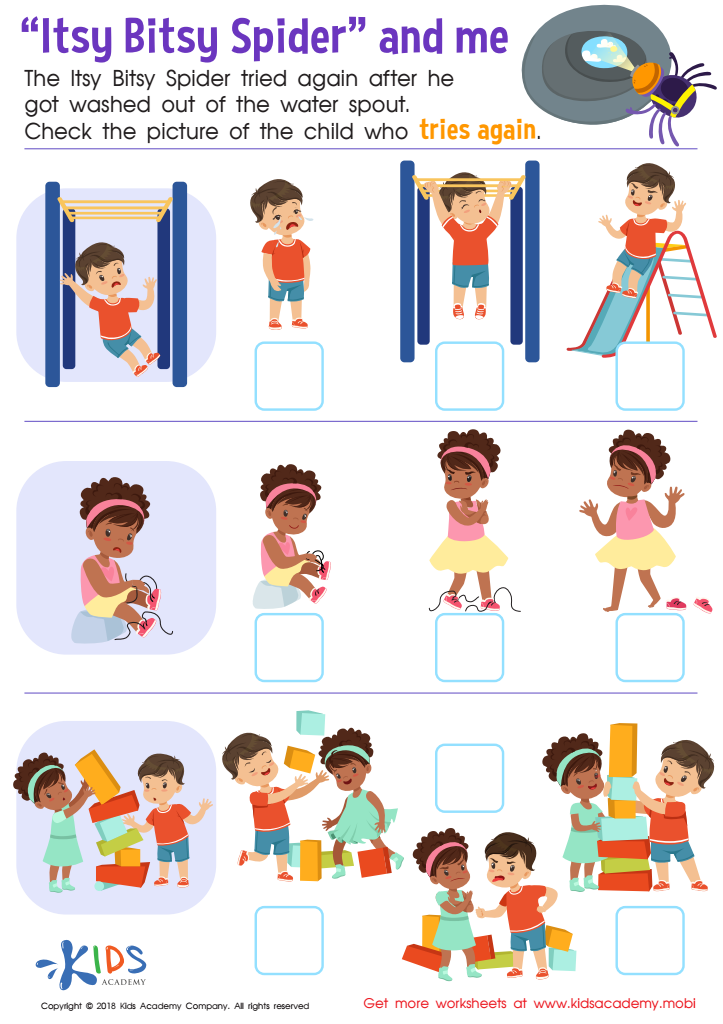

Itsy Bitsy Spider and Me Worksheet
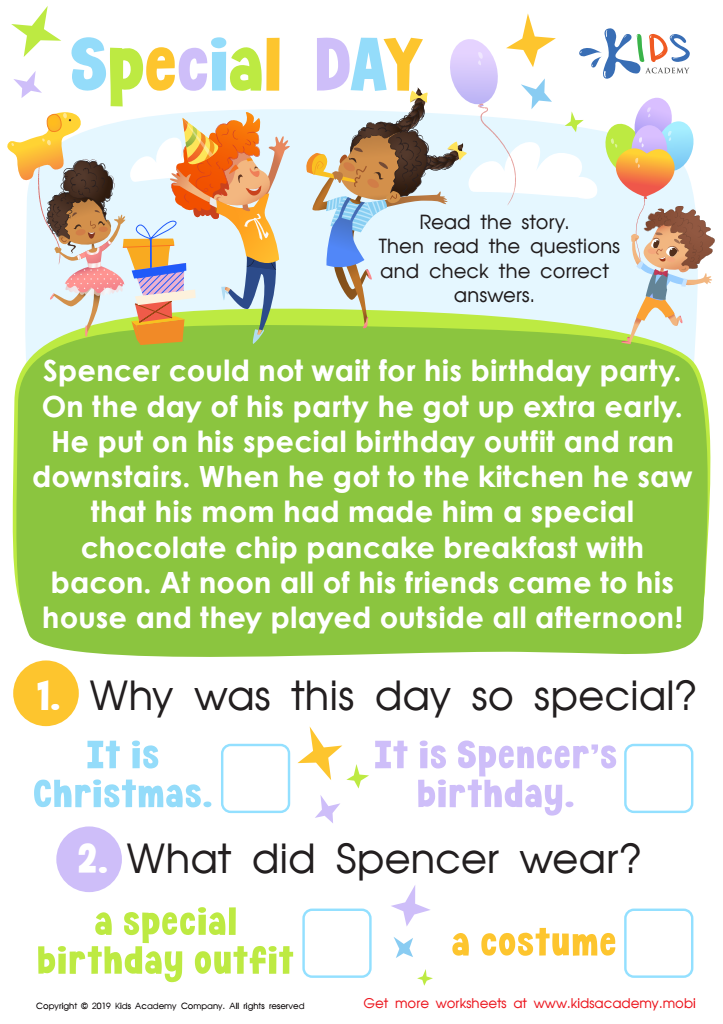

Special Day Worksheet
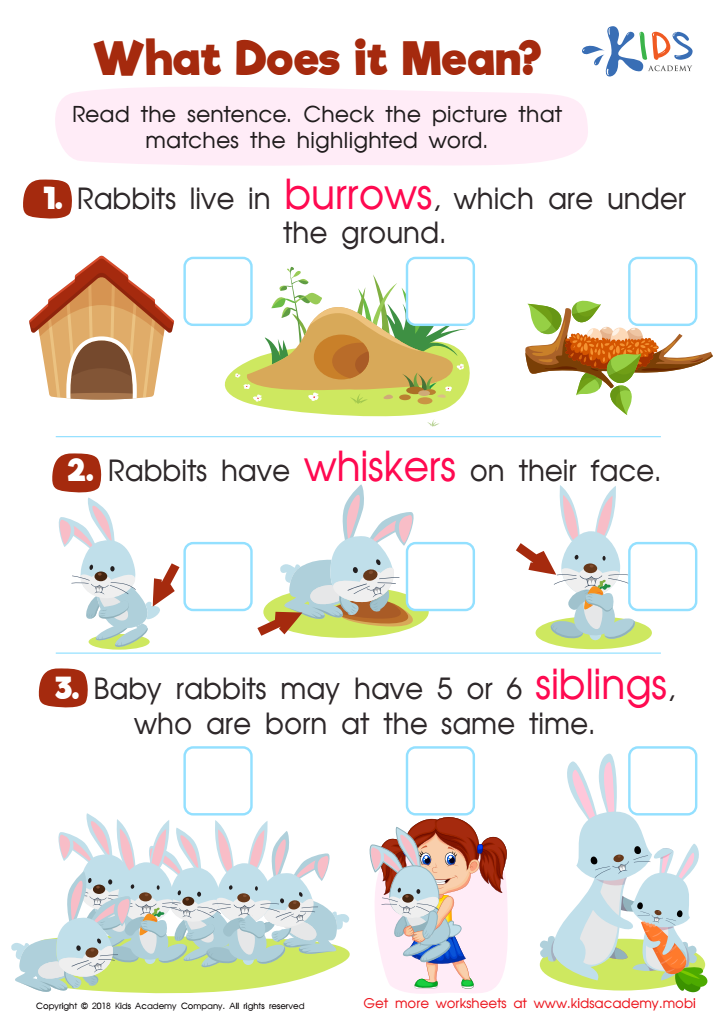

What Does It Mean? Worksheet
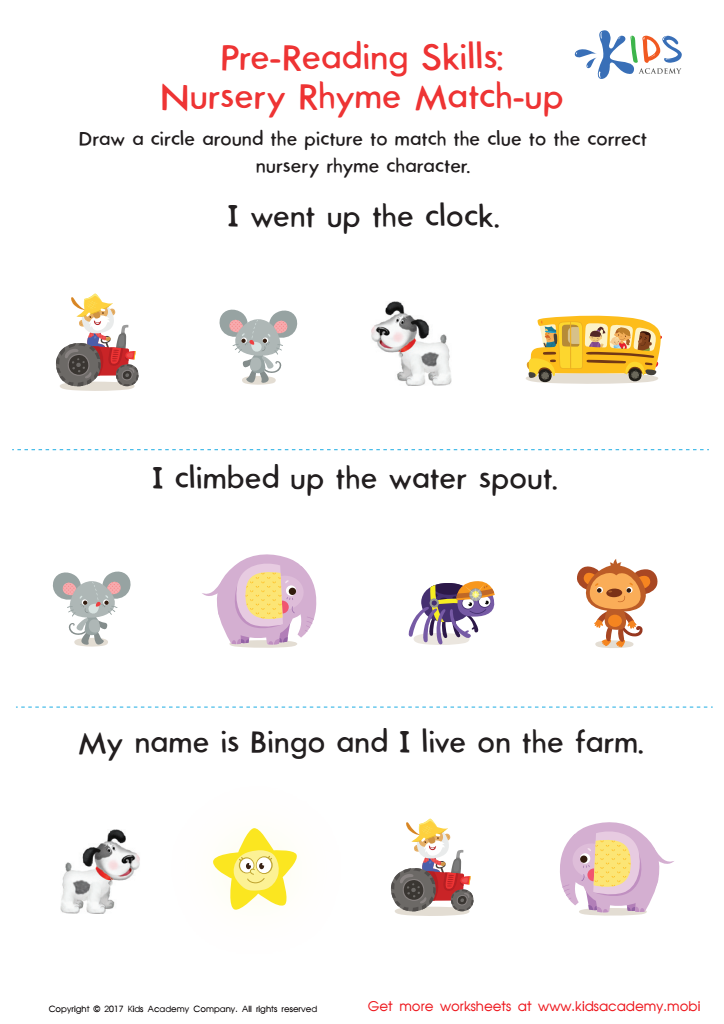

Nursery Rhyme Match–Up Worksheet
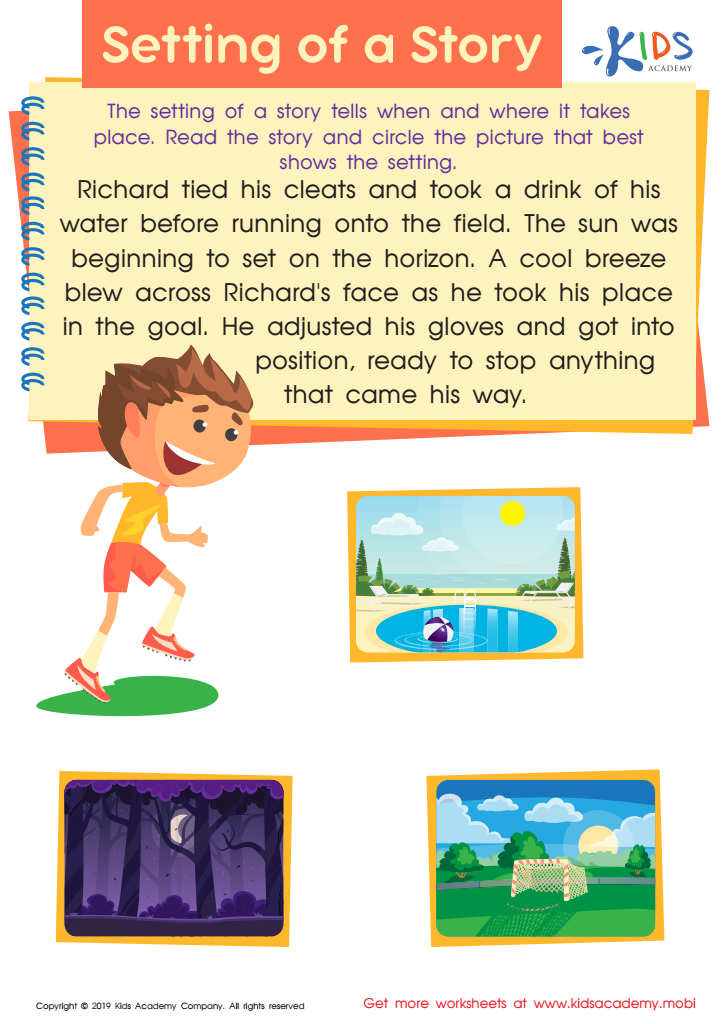

Setting of a Story Worksheet
Reading comprehension is a vital skill for 7-year-olds, forming the foundation for academic success and lifelong learning. At this age, children transition from learning to read to reading to learn. Easy reading fiction not only captivates their imagination but also enhances their understanding of language and narrative structures.
Parents and teachers should prioritize easy reading fiction for several reasons. First, it promotes independent reading habits, fostering a love for books that will benefit children throughout their lives. Engaging stories can spark curiosity and encourage discussions about characters, themes, and personal connections, thereby strengthening comprehension skills.
Moreover, easy reading fiction simplifies complex ideas, allowing children to grasp new concepts without feeling overwhelmed. This ensures they develop critical thinking abilities, as they learn to infer, predict, and summarize narratives. By nurturing decoding skills and expanding vocabulary through enjoyable texts, parents and teachers equip children with tools necessary for more complex reading as they progress in school.
Additionally, skills gained from reading comprehension, such as empathy from understanding characters' perspectives, enhance social awareness. By caring about easy reading fiction, adults play a crucial role in shaping well-rounded, confident readers who can navigate both academic challenges and the world around them.
 Assign to My Students
Assign to My Students










